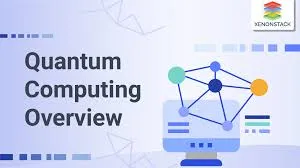
What is quantum computing?

Quantum computing is an advanced form of computing that harnesses the laws of quantum physics to process information in ways traditional computers cannot. Unlike classical computers that use bits (0 or 1), quantum computers use qubits, which can be both 0 and 1 at the same time. This gives them the ability to perform multiple calculations simultaneously, making them powerful tools for solving complex problems.
Key Concepts
- Superposition A classical bit can only represent a single state (0 or 1), but a qubit can exist in multiple states at once. This allows quantum computers to explore many possible solutions simultaneously. However, when a qubit is measured, it collapses into either 0 or 1.
- Entanglement When two qubits are entangled, the state of one is directly connected to the state of the other, even if they are far apart. This relationship enables quantum computers to perform coordinated calculations, greatly boosting their computational power.
- Interference Quantum states behave like waves that can reinforce or cancel each other out. By using interference, quantum computers can strengthen correct answers and reduce the likelihood of incorrect ones.
- Decoherence Quantum systems are extremely sensitive to their surroundings. When external noise or disturbances cause a qubit to lose its quantum state, it’s called decoherence. Maintaining qubit stability and preventing decoherence are some of the biggest challenges in building practical quantum computers.
Advantages of Quantum Computing
- Solves highly complex problems much faster than classical computers
- Simulates molecules and materials at the atomic level for drug discovery and material science
- Enhances artificial intelligence and machine learning
- Optimizes processes in logistics, finance, and manufacturing
- Enables new methods of secure communication and demands stronger encryption
- Accelerates scientific research by simulating natural systems like weather or chemical reactions
Technologies Powering Quantum Computing
- Quantum Annealers: Specialized systems designed for optimization problems (e.g., D-Wave)
- Superconducting Circuits: Qubits controlled by electrical signals at ultra-low temperatures (e.g., IBM, Google)
- Trapped Ions: Charged atoms manipulated with lasers (e.g., IonQ)
- Photonic Quantum Computers: Use light particles (photons) for computation
- Quantum Dots: Tiny semiconductor particles that act as qubits
Applications of Quantum Computing
- Drug and Material Discovery – Simulating molecules to design new medicines and materials.
- Artificial Intelligence – Enhancing AI by processing data more efficiently and improving predictions.
- Optimization – Solving complex problems in logistics, traffic flow, and resource allocation.
- Finance – Improving portfolio management, risk analysis, and trading models.
- Cybersecurity – Enabling ultra-secure communication through quantum encryption and key distribution.
- Simulation – Modeling complex systems such as weather patterns, chemical processes, and power grids.
The Future of Quantum Computing
Quantum computing is still in its early stages, but progress is accelerating. As research advances in qubit stability, error correction, and scalability, quantum computers will soon tackle problems beyond the reach of classical systems. This emerging technology holds the potential to revolutionize industries and usher in a new era of computational innovation.

Praveenkumar M
WebCoder
Praveenkumar M is a WebCoder at FUEiNT, contributing expert insights on technology, development, and digital strategy.
